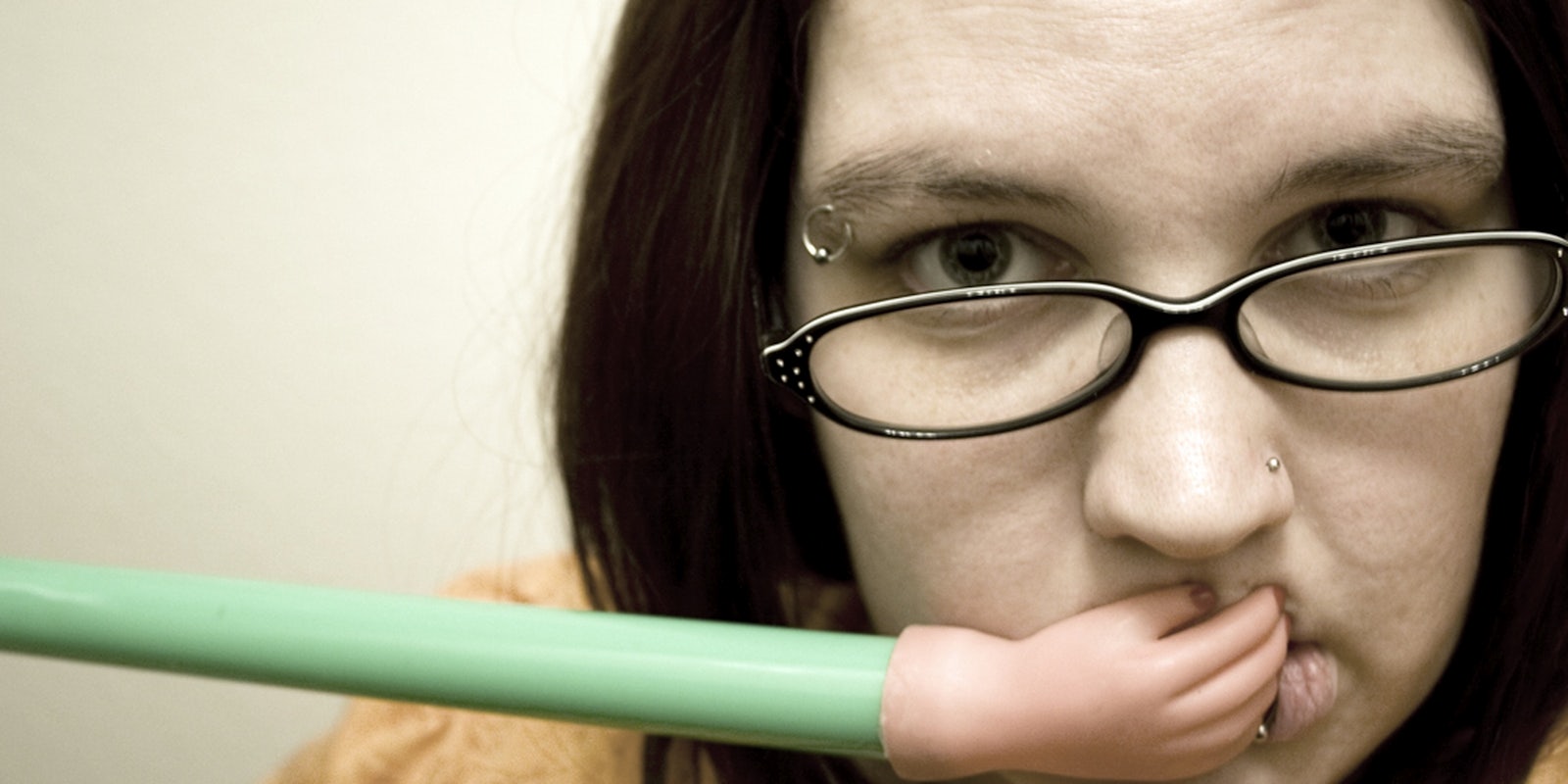The latest ridiculous Twitter trend is #DroughtShaming: posting images of people wasting water, particularly in Southern California. While the hashtag is intended to shine a light on individual water conversation —of lack thereof—California tweeters have a serious case of missing the point. When it comes to the state’s extremely serious drought, the problem isn’t the neighbor watering her lawn, but the agricultural industry, which sucks up 80 percent of the state’s water.
@Starbucks Your faucet was left running in an empty sink for 20 minutes. #droughtshaming pic.twitter.com/Q2a567PsWC
— Susan Hurtado (@TulsaCW) June 1, 2015
More west Hollywood in action #droughtshaming pic.twitter.com/nCNi4Aqekk
— A.J.🇨🇦🇮🇳🏳️🌈 (@sensorglitch) June 2, 2015
Ooh someone’s getting scolded for watering their lawn. #droughtshaming pic.twitter.com/1wwvTpirFj
— Caroline Pardilla 🇵🇭 (@CaroPardilla) June 2, 2015
Of the remaining 20 percent, six percent goes to industry, government, and commercial uses. Individual households account for just 14 percent—a drop, so to speak, in the bucket. Those concerned about the state’s zero percent snowpack, rapidly shrinking reservoirs, and desiccated landscape should be casting their eyes at California’s Central Valley, beating heart of the state’s agriculture and thirsty guzzler of natural resources.
The problem with California’s agricultural sector isn’t just that it consumes water extremely inefficiently, with little regard to the rest of the state and the potential tragedy of the commons unfolding. It lies in a sense of entitlement embedded within the state’s water policy, one that encourages farmers to believe that they have a right to waste water—because the state, like others in the West, views the resource as a use it or lose it proposition.
As Abrahm Lustgarten at ProPublica reports:
[Ranch manager Bill Ketterhagen] knows his fields could thrive with much smaller amounts of water—he’s seen them do so in dry years—but the property owners he works for have the legal right to take a large supply, and he applies the water generously. … Under the provisions of these measures, people who use less water than they are legally entitled to risk seeing their allotment slashed.
In April, Governor Jerry Brown ordered historic water restrictions across the state, mandating that the state reduce water usage by 25 percent and implementing high fines for waste. Individual counties and cities also instituted their own restrictions to toughen up, primarily on residents.
But one thing hasn’t happened yet: a conversation about agriculture. The state’s farming industry freely wastes water, applying it at times of day subject to evaporative loss, using far more than needed by individual crops, and watering so much that topsoil is carried away into local watersheds. The issue of farm-based waste is huge in California, but it remains the elephant in the room.
https://twitter.com/ItsRamboRomeo/status/605807154876981249
https://twitter.com/HarrietElls/status/606650880046198784
@Culvercity311 fyi The city is watering pavement every morning at the wash blvd and wash place fork. #DroughtShaming pic.twitter.com/G5pfQLW6oG
— Audra Gold (@audragold) June 11, 2015
Farming doesn’t have to be so wasteful, and the drought doesn’t need to bring the state’s agricultural industry to its knees. Dry farming, an ancient practice used across the Mediterranean and still in use in some regions today, relies on extremely limited water use to grow commercial crops. Farmers see lower yields, but in a tradeoff, fruits and vegetables are actually more flavorful, because they’re not loaded with water. Think of a farmers’ market tomato bursting with rich, dense flavor versus a watery, mealy grocery store version.
The determined refusal to avoid the abuses of the agricultural industry is reflected in #DroughtShaming, a frivolous, pointless, and unproductive act. Advocates argue that it’s educational or an act of protest—the lawns of the rich and famous are a particular target, with their gross excess highlighting class divides in the golden state—but it’s a waste of the Internet’s tremendous power and resources.
In addition, many of those involved in drought shaming freely post addresses or identifying information of private homeowners and renters—some of whom are actually required to maintain their lawns under the terms of their leases—which poses a significant safety risk.
As California whips itself into a rinse-free lather over the drought, tensions between individual citizens are growing. As people cruise the streets looking for waste to highlight on social media, they’re haranguing landscapers trying to do their jobs, terrifying individuals who don’t appreciate being treated like criminals, and making judgements without seeing the whole picture. That lush garden, for example, may be growing with recycled graywater, and in the process, it could be helping the soil retain water while cooling the urban environment.
Instead of #droughtshaming individuals, social media should be singling out @driscolls or @harrisranch, and people like Senator Cathleen Galgiani, chair of the Senate Committee on Agriculture. California does have a water problem: Let’s make sure we lay it at the feet of the right people.
S.E. Smith is a writer, editor, and agitator with regular appearances in the Guardian, AlterNet, and Salon, along with several anthologies. Smith also serves as the Social Justice Editor for xoJane and will be co-chairing Wiscon 40—the preeminent feminist science-fiction conference—in 2016.
Photo via pyxopotamus/Flickr (CC BY ND 2.0)


